Top 25 entrepreneurs breaking new ground in Australia
Meet the Australian start-ups poised to take the nation by storm in the year ahead, from the longevity expert to an app turning scam calls on their head.
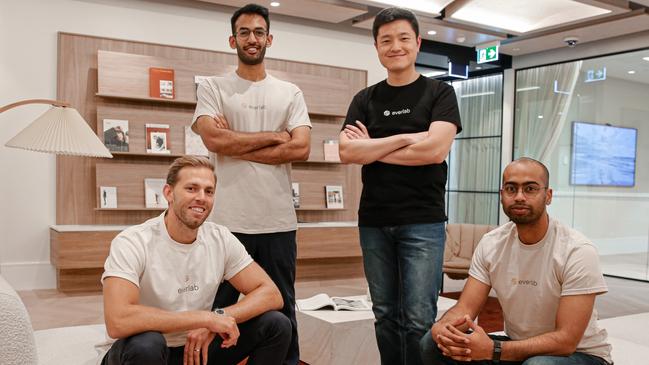
Meet the Australian start-ups vowing to take the nation by storm in 2025. These entrepreneurs are breaking new ground, revamping old ways and making the world greener and more efficient as they uncover new methods of manufacturing.
Everlab
This boutique healthcare start-up specialises in the relatively niche area of longevity, the latest and greatest healthcare trend in which an increasing number of Australians are interested in preserving their health and youth for as long as possible.
In 2024, Everlab, founded by a former Airwallex staffer and nutrition entrepreneur, nabbed a $3m shot in the arm to broaden its products to the general public.
The start-up was charging up to $15,000 for its services in 2024 but said it would use its new funds to catapult itself into the mainstream.
JustFund
The brainchild of two former dispute lawyers and a fintech investor, JustFund helps fund the legal costs of Australians going through a divorce.
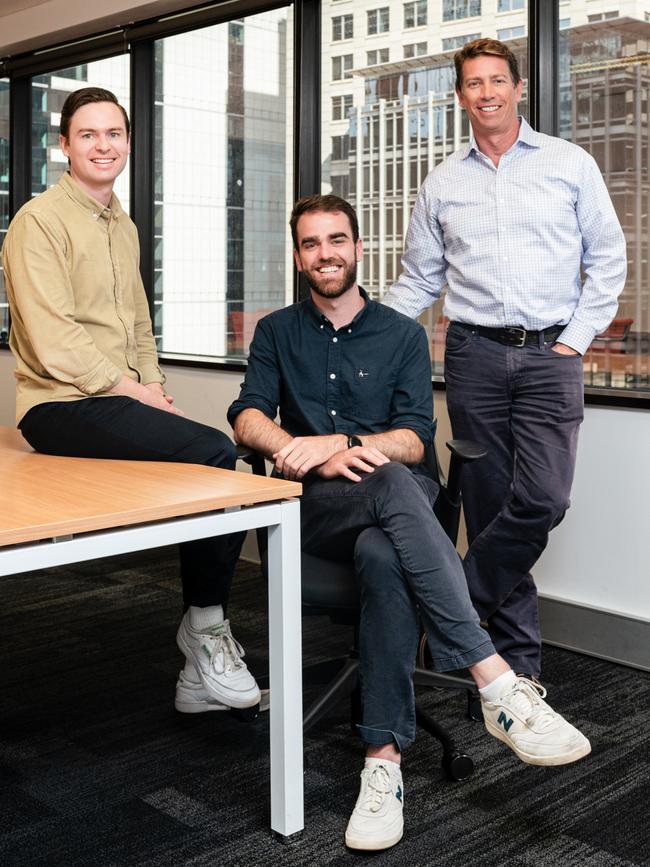
It was built on the premise that the majority of marriages don’t end fairly despite what’s exchanged in a couple’s vowels, and last year it raised $86m as it surpassed $100m in lines of credit.
An estimated 40 per cent of Australian marriages end in divorce.
Safewill
A Sydney start-up that can create a will in less than 15 minutes for 80 per cent less than traditional methods has raised $17m to grow the business.
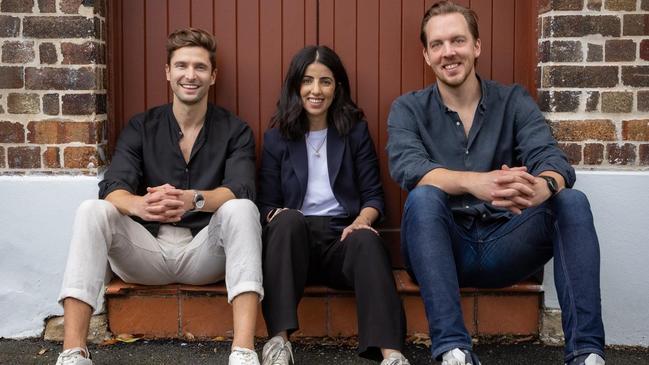
Safewill, which has written 150,000 Australian wills since its founding in 2019, claims more than half of the population is yet to write a will.
It is going after that market and claims to have grown its membership base 200 per cent year-on-year since 2019. It also partners with charities to funnel estates into their bequest programs, with more than $1bn raised in future gifts to the likes of the Cancer Council, RSPCA and Guide Dogs.
Apate
Cyber security experts have discovered that one of the best ways to beat a scammer is not to block their calls but rather to answer them.
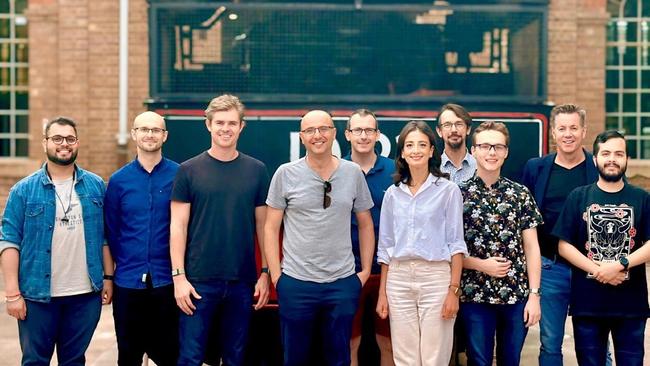
Apate has built an artificial intelligence-powered engine that can create millions of different personalities, all of whom will answer a scammer’s call and then turn the scam around, wasting their time so they cannot harm others.
The start-up has grown so popular it has begun to nab deals with Australia’s largest bank, Commonwealth Bank, as well as major telcos, all of whom want the intelligence it gathers about scammers.
MGA Thermal
This renewable energy start-up from Newcastle is running hot among investors, having picked $14m in 2024 to scale up the development of its thermal blocks that are capable of storing steam at up to 600°C.
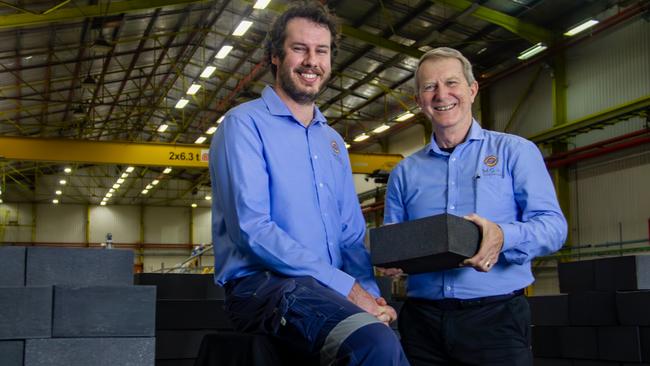
MGA Thermal’s system can simultaneously charge and extract heat from purpose-built blocks, allowing it to produce steam hot enough to manufacture furniture, process minerals and produce food and beverages.
It capped off 2024 with a trial to decarbonise US energy giant Chevron with one of its five megawatt hour units, valued around $3m to build and deliver.
Applied EV
This Australian start-up backed by Suzuki is building autonomous vehicles, aiming to take on the logistics and mining sectors.
Its chief executive Julian Broadbent is a General Motors veteran of 20 years who is loud and proud about the fact that he believes there’s little money to be made in robotaxis and that autonomous vehicles will perform much better delivering products on industrial sites.
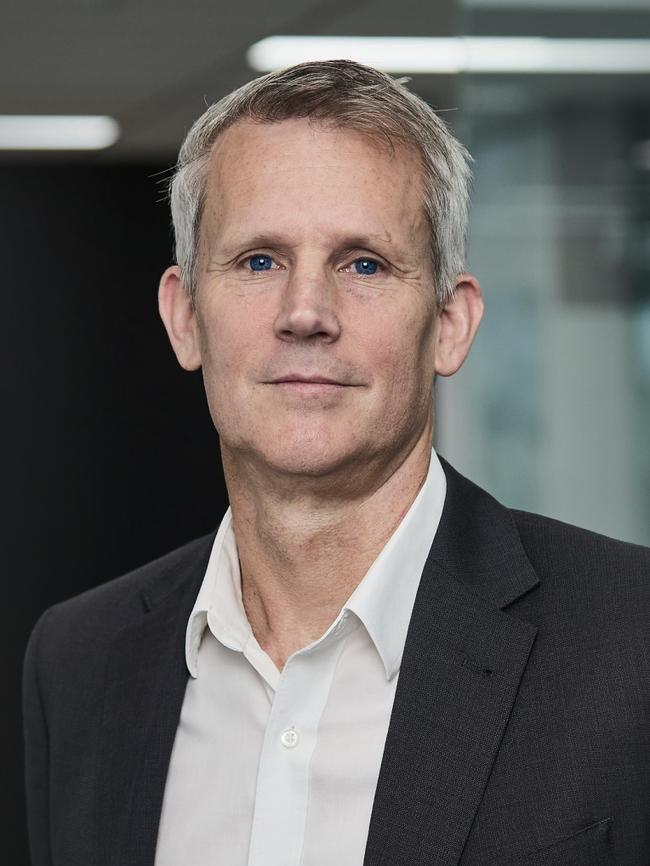
Applied EV is now building autonomous vehicles for as little as $50,000 to $100,000 with backing from Japanese automotive giant Suzuki and commitments from the car manufacturer to co-develop new autonomous vehicles.
Asseti
This Sydney start-up which built a business managing major commercial assets has unintentionally become an authority helping them crack down on dodgy tradies.
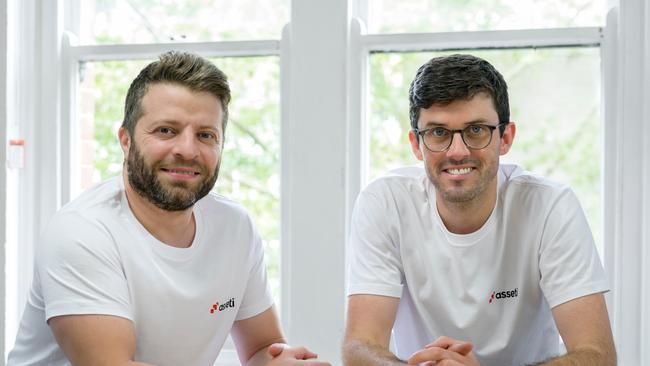
Asseti has become the Uber for drone pilots, building a network of more than 3500 across Australia and the US that it pays to perform flyovers and capture footage and imagery above buildings. The images are then used to monitor their quality and look for damage.
It trains people to be drone pilots, and pays them between $350 and $800 a day for their work and some of Australia’s largest companies including Mirvac cannot get enough of it.
Arlula
The race to space has delivered a plethora of opportunities for the brave and one of those who has capitalised on that and his passion is a 30-year-old from Sydney’s Mount Druitt.
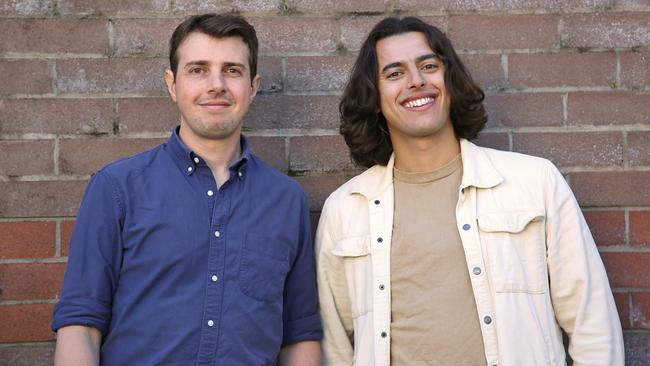
Sebastian Chaoui, the co-founder of satellite imagery and data start-up Arlula, has inked a deal with the Japanese government to command, track and analyse the data from its growing geostack of 50 satellites.
The deal arrives after Mr Chaoui and his co-founder Arran Salerno raised $2.2m in a seed round led by Main Sequence, the venture capital arm of CSIRO.
Earthodic
A Brisbane investment manager with a chemistry PhD has raised $6m after developing a fully recyclable protective coating for paper and cardboard packaging.
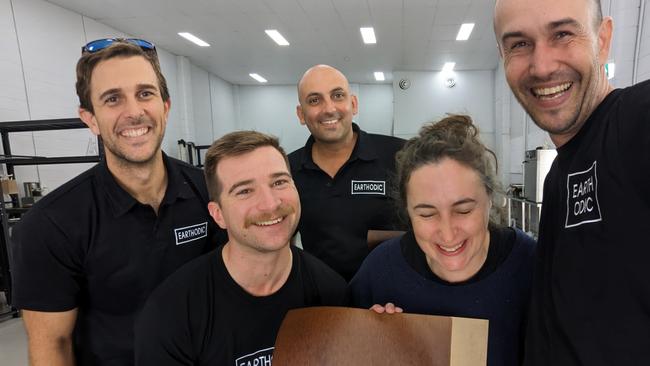
The protective coating is used to strengthen boxes and other packaging materials to carry produce as well as make them waterproof – like the lining on the inside of a paper coffee cup.
The idea arrives as online shopping continues to boom with cardboard and paper-based products treated with non-recyclable coatings used for deliveries now accounting for about 30 per cent of landfill, says Anthony Musumeci.
His start-up, Earthodic, wants to tackle this problem head on with a direct drop-in replacement to non-recyclable options which uses lignin – a form of organic polymers – that can be recycled time and time again.
Nullify
A Sydney cybersecurity start-up which has attempted to tackle the industry’s shortage of experts raised $5.2m in 2024 after developing an under-the-hood AI-powered cybersecurity engineer.
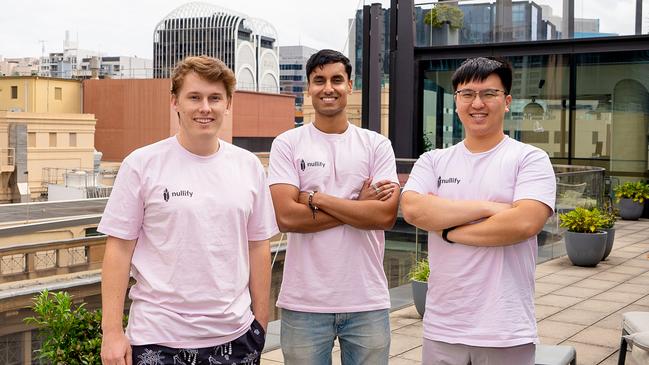
Nullify’s product is embedded into a company’s back-end and can analyse the latest trends in cybersecurity and measure them against a company’s code to find vulnerabilities.
Bridgit
This Sydney-based short-term loan start-up founded by a first generation Ukrainian Australian entrepreneur wants to take over the so-called downsize market.
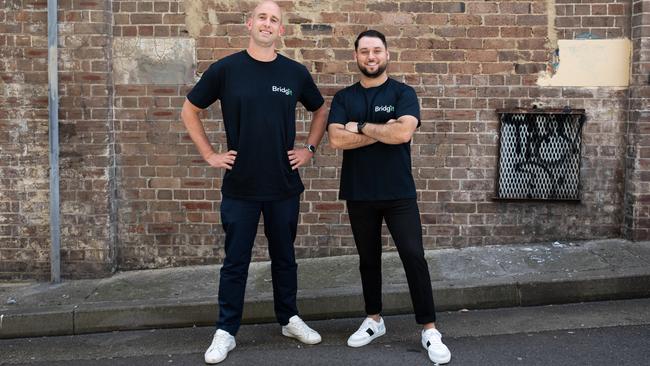
As new tax initiatives encourage older Australians to move into smaller properties, Bridgit wants to broker the deals.
The company also wants to be a financial saving grace for those with inherited wealth, who might be asset rich but without the capital needed to shift out of their current home or invest in other ventures.
In 2024 the start-up raised $14.6m in 2024 and took out a $125m debt raise to grow services.
Visibuild
A Melbourne builder who was discontent with time-consuming paper processes has built the world’s first software platform to give real-time updates on construction projects.
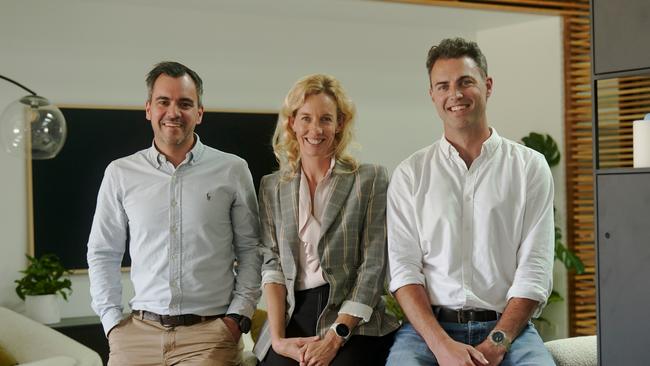
Damien Quinn’s Visibuild raised $6.6m last year as its SafetyCulture-like checklist app was backed by Skip Capital, the private investment firm founded by Kim Jackson, who is married to Atlassian co-founder Scott Farquhar.
Visibuild has raised $6.6m as the start-up, founded by Damien Quinn, aims to be the first platform in the world to give real-time updates and data on major construction projects.
Mr Quinn, a registered builder for more than 18 years, said he had spent months looking for a solution to track construction updates in real time but there was nothing on the market. After months of not being able to find something, he decided to build it himself.
CorePlan
This Perth start-up has also cottoned onto the fact that there’s a pretty penny to be made in revolutionising outdated processes. CorePlan, founded by former mining consultant Alex Goulios, has plugged a gap in the mining and drilling industry by building a platform that allows the mine and the drilling contractors to connect in a single place to log and monitor activity.
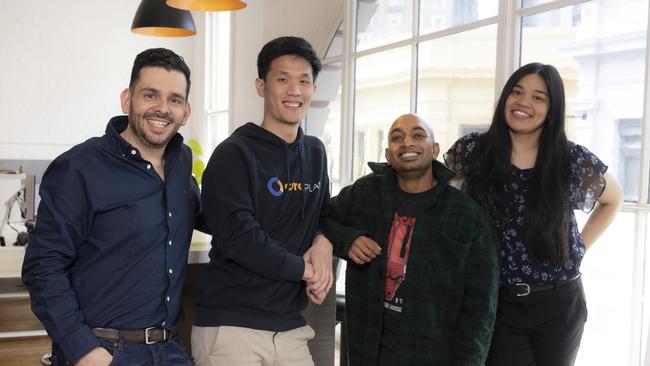
It’s an idea that impressed BHP, Fortescue and AngloGold who have all joined as customers and last year the start-up raised $4m to double its headcount and target more mining giants across the globe.
Sicona Battery Technologies
This Wollongong-based start-up is changing the chemistry in lithium-ion batteries, allowing the use of silicon to reduce the world’s dependence on China.
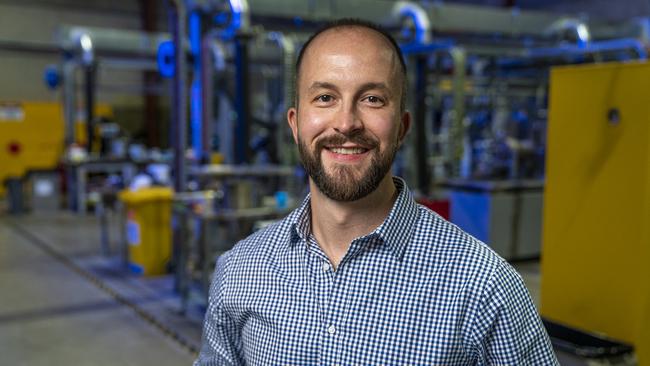
The use of silicon minimises the use of graphite in batteries, which makes up about 95 per cent of anode materials used in lithium ion batteries.
Noveco Surfaces
This Nowra-based start-up has found a use for old wine bottles, turning them into high-end tiles.
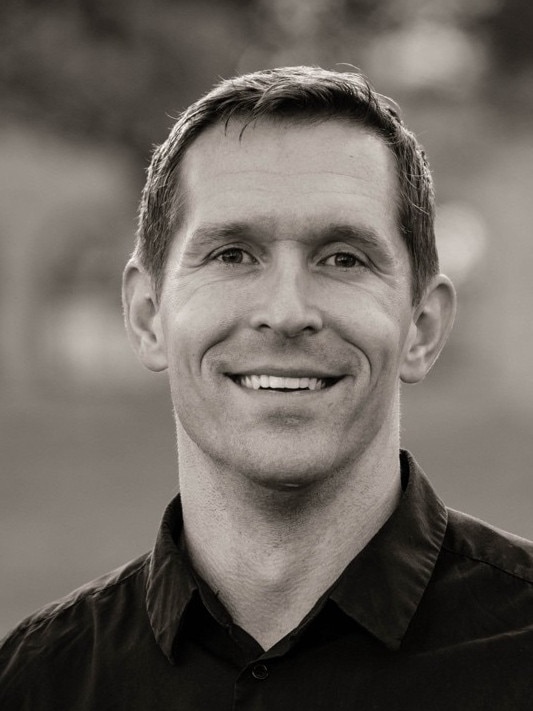
Noveco Surfaces uses a patented technology developed at UNSW Sustainable Materials Research & Technology Centre, that enables it to manufacture tiles from 80 per cent recycled glass.
The start-up picked up $7.75m in debt from NAB in 2024 as it looked to use its technology to build benchtops.
Fresho
This Melbourne start-up has raised $17m as it seeks to eliminate food waste and save wholesalers a fortune by better anticipating their restaurant customers’ needs, thanks to artificial intelligence.
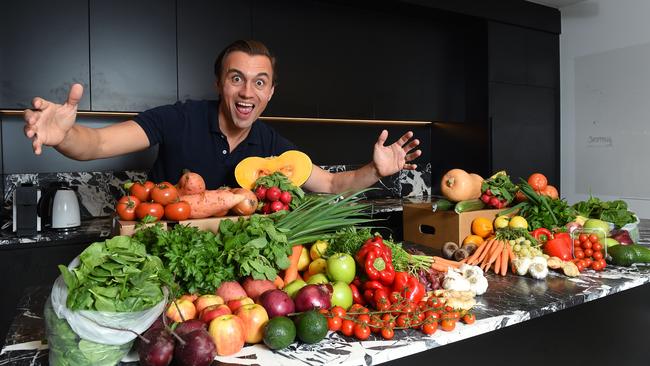
Fresho, which James Andronis and Huw Birrell founded in 2015, is now looking to expand to the US, with the raising – led by Geoff Tarrant, co-founder and former executive chairman of Payapps – valuing the company at $120m.
The pair have developed a platform that aims to make ordering produce more efficient at a wholesale level. Mr Andronis said it has replaced fresh food wholesalers dedicating overnight staff to manually process orders, which typically arrived via email, text, voicemails and even faxes, which often resulted in errors and wastage.
Neara
An Australian start-up capable of predicting the lifespan of an energy network, running it through thousands of digital simulations from thunderstorms to earthquakes, is quickly gaining global notoriety.
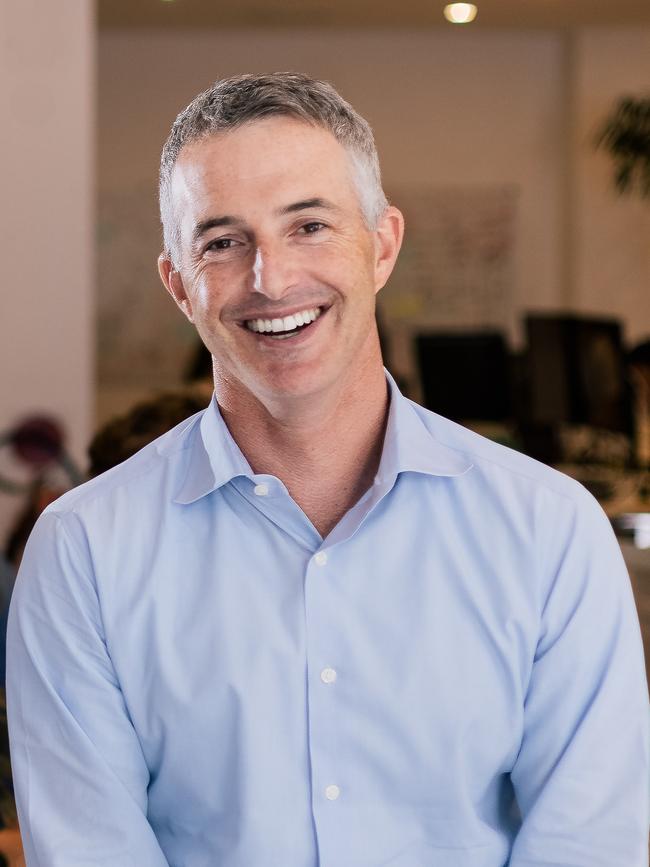
Neara, which counts Ausgrid, SA Power Networks and Endeavour Energy as customers, raised $45m in 2024 with backing led by EQT and Square Peg. Skip Capital was also a major investor.
The start-up works with about 70 per cent of the nation’s electricity market, and uses artificial intelligence trained on more than a million energy assets to determine their life spans and how they will hold up in the future as energy demand rises and natural disasters take place.
Fleet Space Technologies
Adelaide-based Fleet Space Technologies raised $150m in December as it seeks to revolutionise mineral exploration on earth, and eventually the moon.
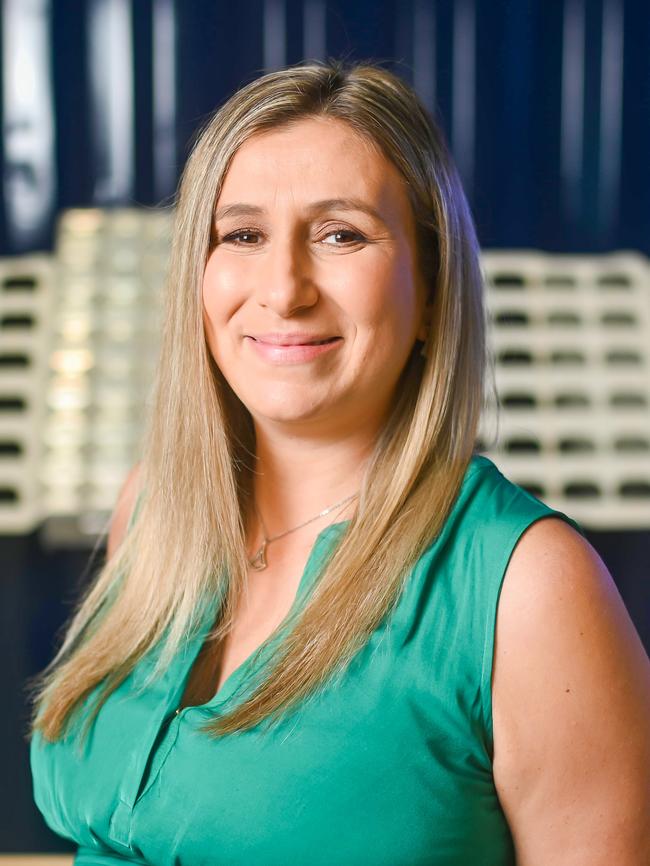
The company’s ExoSphere technology combines low earth orbit nanosatellites with ground-based sensor arrays, using ambient noise tomography and artificial intelligence to image geological features to depths of about 2.5km.
Fleet, founded by Flavia Tata Nardini and Matt Pearson, has to date completed about 400 surveys, and recently announced it would be developing 3D subsurface maps of Rio Tinto’s Rincon brine lithium deposit in Argentina, and has extended its work with IsoEnergy in Canada’s Athabasca Basin, where ExoSphere accurately identified drilling targets for uranium mineralisation.
Ofload
Freight logistics start-up Ofload raised $31m last year to build a carbon emissions tracking platform that was so convincing that retail competitors have begun to share trucks.
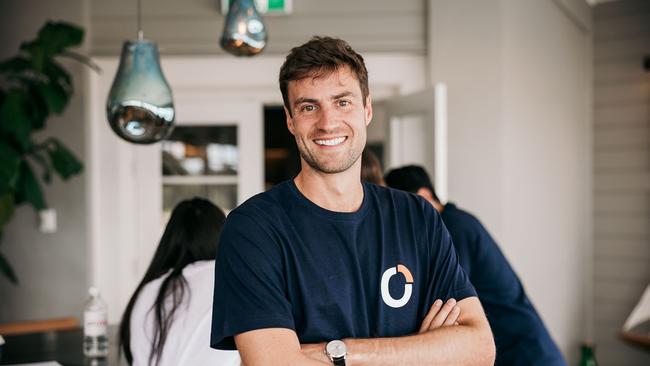
In one case, an alcohol brand that wanted to change its customers’ ordering behaviours but they wouldn’t bite, so they used data from the platform that showed if its orders were combined with a competitor it would result in a 20 per cent emissions reduction.
Its chief executive Geoffroy Henry said building the new platform was a natural decision as more Australian companies took stock of their environmental impact – not only by choice but at the demand of their customers.
The platform could measure emissions based on several different factors including the age of the vehicle, its route and the time of day it travelled. The new $31m capital round now values Ofload at $350m, representing a 200 per cent growth in a little under two years.
Xefco
This Melbourne-based sustainable clothing start-up, which sells to the likes of Zara and The North Face, has developed a way of colouring and finishing textiles without excessive use of water.
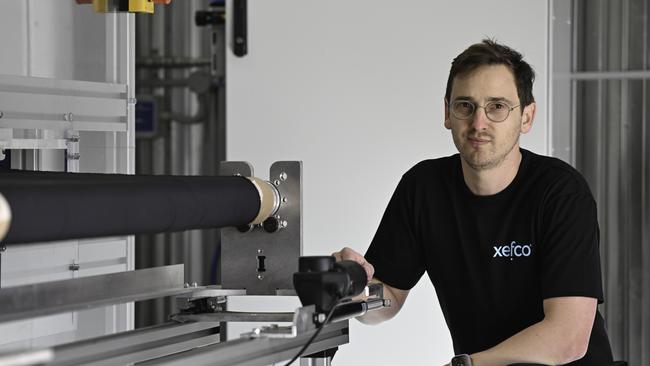
The new method, which involves a plasma coating process, helped it raise $10.5m in 2024 as clothing manufacturers increasingly scrutinise their processes.
Aquila
William Jeremijenko has built an optical energy network that can deliver power between aircraft in the sky.
The 23-year-old founder of Aquila has proven the ability to transmit energy to a drone from 376m away, an impressive feat that earned his start-up $3m in backing from Blackbird.
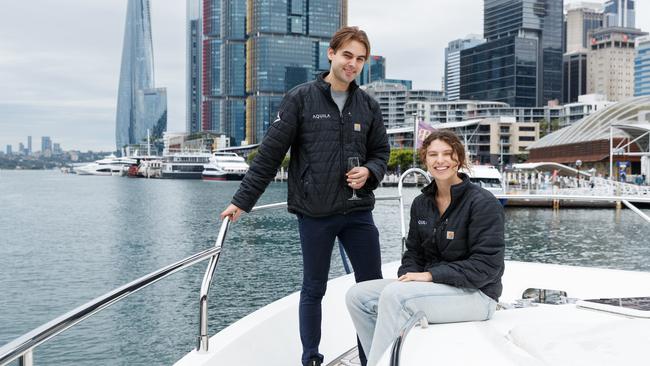
Aquila has a broader vision of building a world in which energy networks are much like the internet, accessible almost everywhere in the world. But its next big bet is transmitting energy over a 1km distance.
Hullbot
An Aussie surfer from Sydney’s Coogee who has built an underwater boat cleaner that doubles as a surveillance device is making waves with the Australian Defence Force.
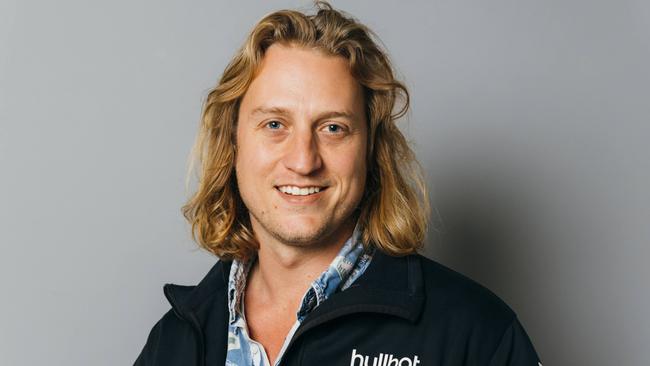
Tom Loefler’s Hullbot has developed an autonomous underwater device, that weighs around 10kg, about the size of a case of beer, that can clean the slime from a boat’s hull, and that can save as much as 17 per cent in fuel costs.
But it’s the surveillance capabilities which collect data from multiple sensors and cameras that have impressed the Royal Australian Navy which is trialling its technology.
Arc Ento Tech
Australian start-up Art Ento Tech has a mission to convert waste into energy using biological and mechanical processes, a bid that earned it $5m in capital raise last year.
The Sydney-based start-up is building three plants at landfill sites across Sydney where its processes include using black soldier flies to consume edible organic waste then converting their larvae into commercial products including insect meal for salmon farms.
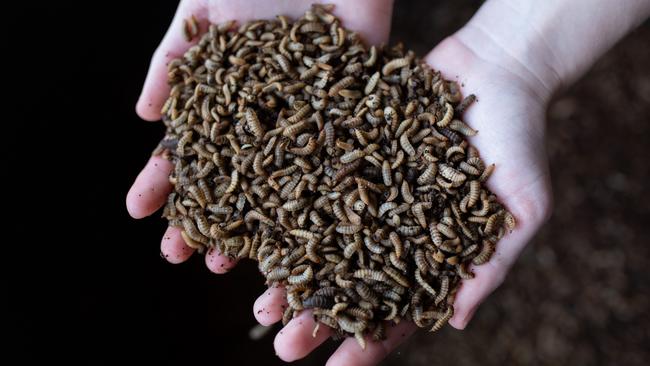
Its mechanical process converts plastics and non-digestible organics into refuse derived reductant, a type of fuel that can be used for a range of industrial purposes.
BindiMaps
As accessibility grows increasingly front of mind, one Aussie start-up has developed an indoor mapping system that can help the vision impaired navigate retail settings.
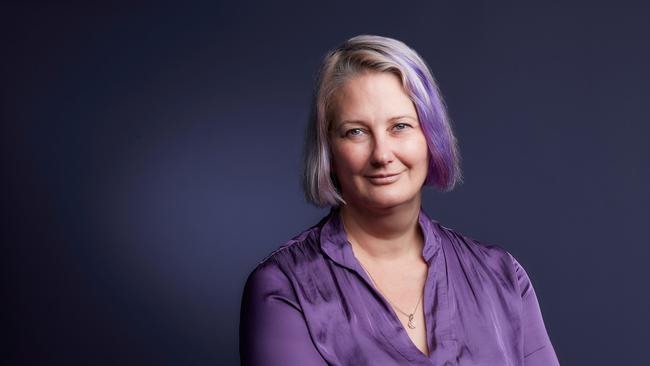
BindiMaps founder Anna Wright, a former EY consultant, says her start-up’s maps are more accurate than Google Maps, and Australia Post is a believer, having come on board as its latest major commercial customer.
The start-up users the cameras on its customers phones to recognise structures inside a building and guide them through it. They also capture relevant data, allowing the start-up to build heat maps, recognise which areas are in need of repair and collect other data.
Rich Data Co
This Westpac-backed fintech uses artificial intelligence to give bankers “rapid access to more detailed data” to help them decide whether to lend to businesses.
Co-founder and chief executive Ada Guan started the business in 2016 after a 20-year career including senior roles at Oracle, Westpac, Woolworths and Macquarie.
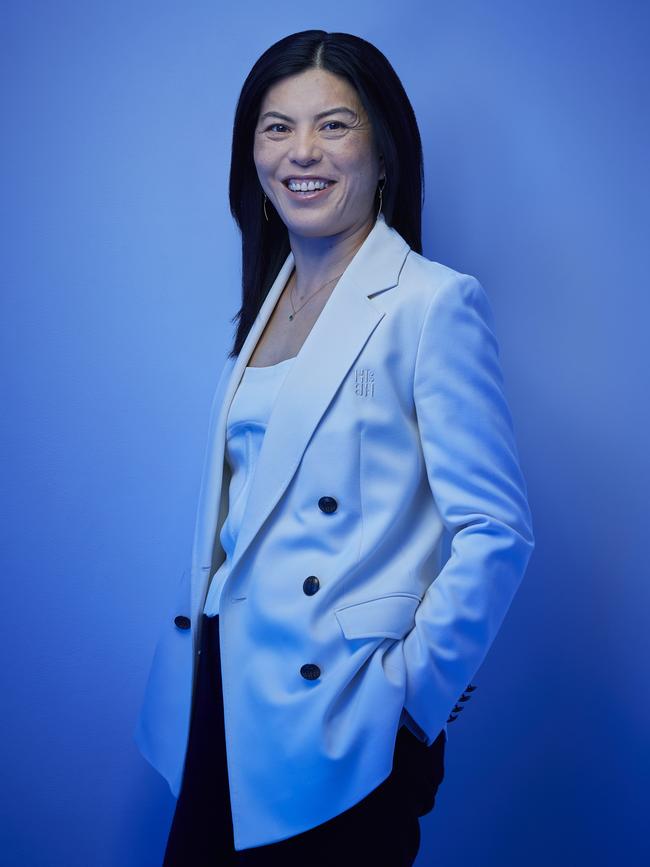
In 2024m Rich Data Co secured $9m from Acorn Capital, an investment that completed the Sydney-based start-up’s $37m Series B raise and will give it a capital boost to expand into the US, where it has already signed M&T Bank, America’s sixth-largest commercial bank.




To join the conversation, please log in. Don't have an account? Register
Join the conversation, you are commenting as Logout